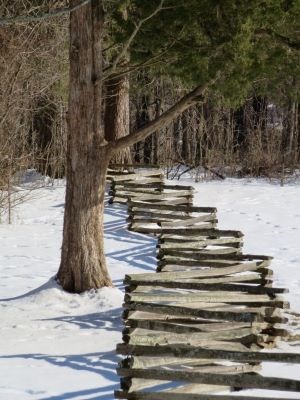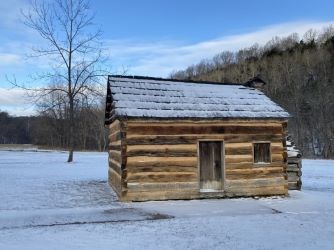Last updated: April 4, 2023
Article
1816 - The Year Without Summer

NPS
1816, also known as the ‘Year Without Summer,’ ‘Poverty Year,’ and ‘Eighteen Hundred and Froze to Death.’
The eruption of Mount Tambora in Indonesia in 1815 triggered a change in the global climate. The heavier material fell to the ground and the ocean’s surface. However, when lighter particulates reached the stratosphere, they spread out and created an aerosol cloud the size of Australia.The cloud blocked sunlight from reaching the earth and changed the global climate by 2-7 degrees Fahrenheit, the effects of which devastated much of the world in what should have been the summer of 1816. Crops failed across Europe and the U.S. due to the cold or lack of sunshine causing grain and oat prices to soar, torrential rains flooded crops in Ireland, novel strains of cholera killed millions in India, crime became rampant, and people starved in many countries.
Summer never came.
Early European settlers were drawn to the temperate climate of the eastern U.S. as spring rains and summer warmth created the perfect recipe for productive farming. Plentiful yields fed them throughout the bitter winters and were key to their survival. But in 1816, summer never came to the New England states.
May frost killed off most of the crops in New York, Massachusetts, New Hampshire, and Vermont. In June, heavy snow smothered the ground in Albany, New York and Dennysville, Maine, while frost persisted for five consecutive nights in Cape May, New Jersey. The relentless cold weather extended into late summer, in what would have normally been harvest season. In July, lakes and rivers remained frozen as far south as northwestern Pennsylvania, while frost remained in Virginia into late August. Temperatures dipped from above-normal summer temperatures to near-freezing within mere hours. All because of a volcanic eruption on the other side of the world.
Lincoln’s family lived at the Knob Creek Farm during this time, so they would have experienced this climatic event, as well. The lack of sun, freezing temperatures, and frost would have likely damaged, if not decimated, the Lincoln’s crops. This would have made for a very hungry winter.

NPS
Is the Year without Summer foreshadowing?
Those who survived this little ice age witnessed the devastating impacts that a few degrees of change can cause. By 2050, the average global temperature is expected to increase by four degrees. However, unlike the global change in climate in 1816, this temperature change will be permanent and caused by human activity, not nature. People all around the world are leaving their homes to escape the effects of human-driven climate change. In the U.S. alone, we are experiencing more frequent and intense storms, hurricanes, tornados, wildfire, and drought. Is the Year without Summer a glimpse of what is to come? That depends on us.
NPS Climate Change
Learn more about Climate Change and your National Parks. Units across the National Park System are actively working to address the challenge of climate change.
